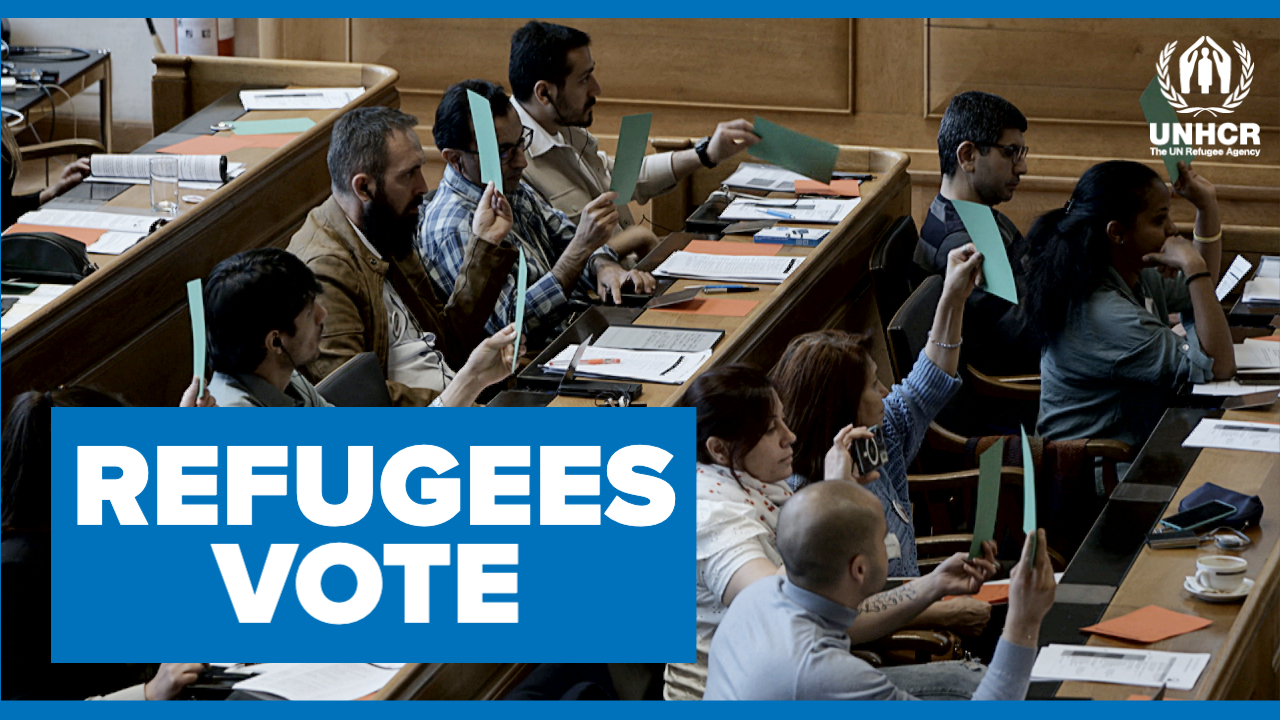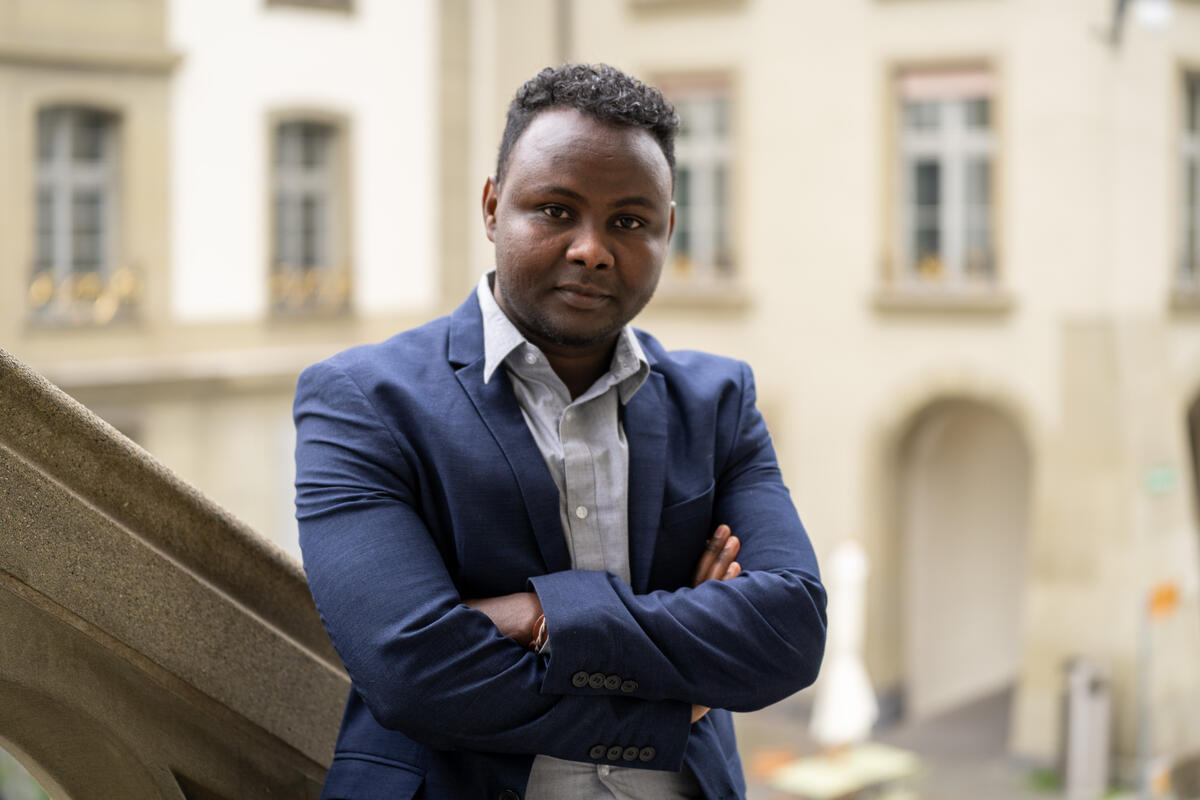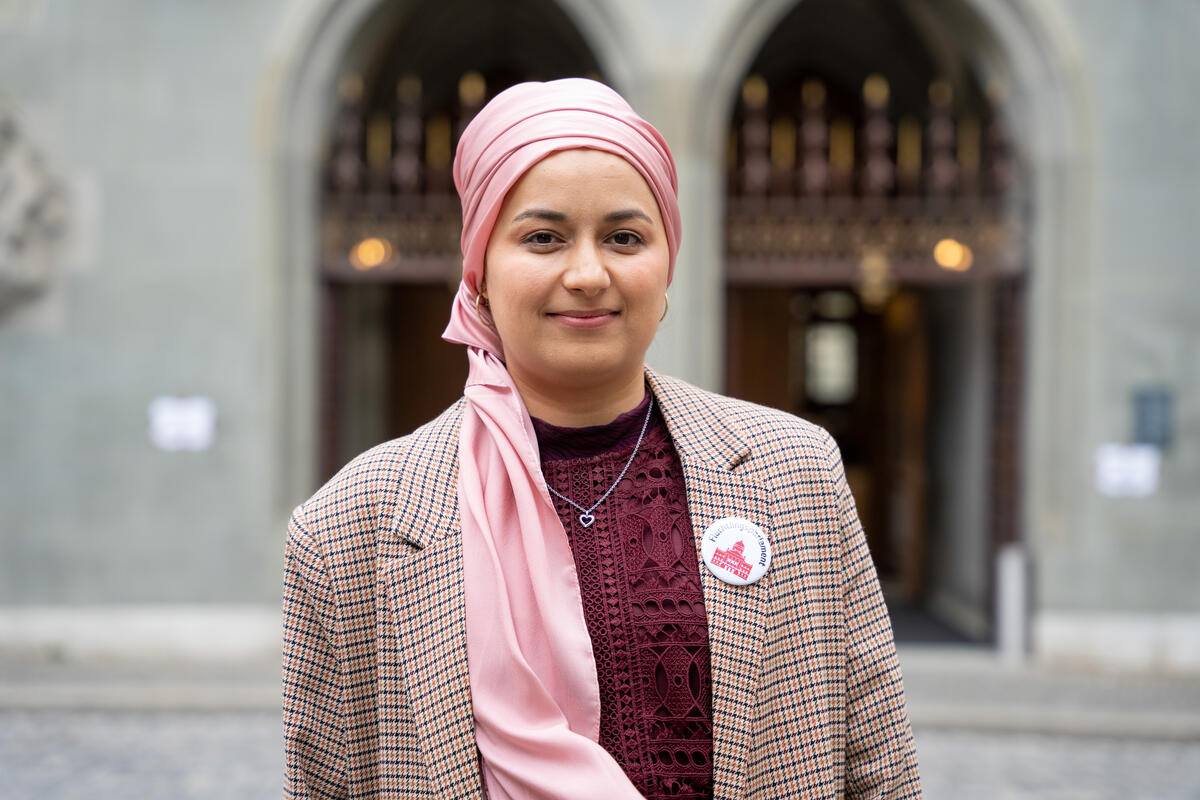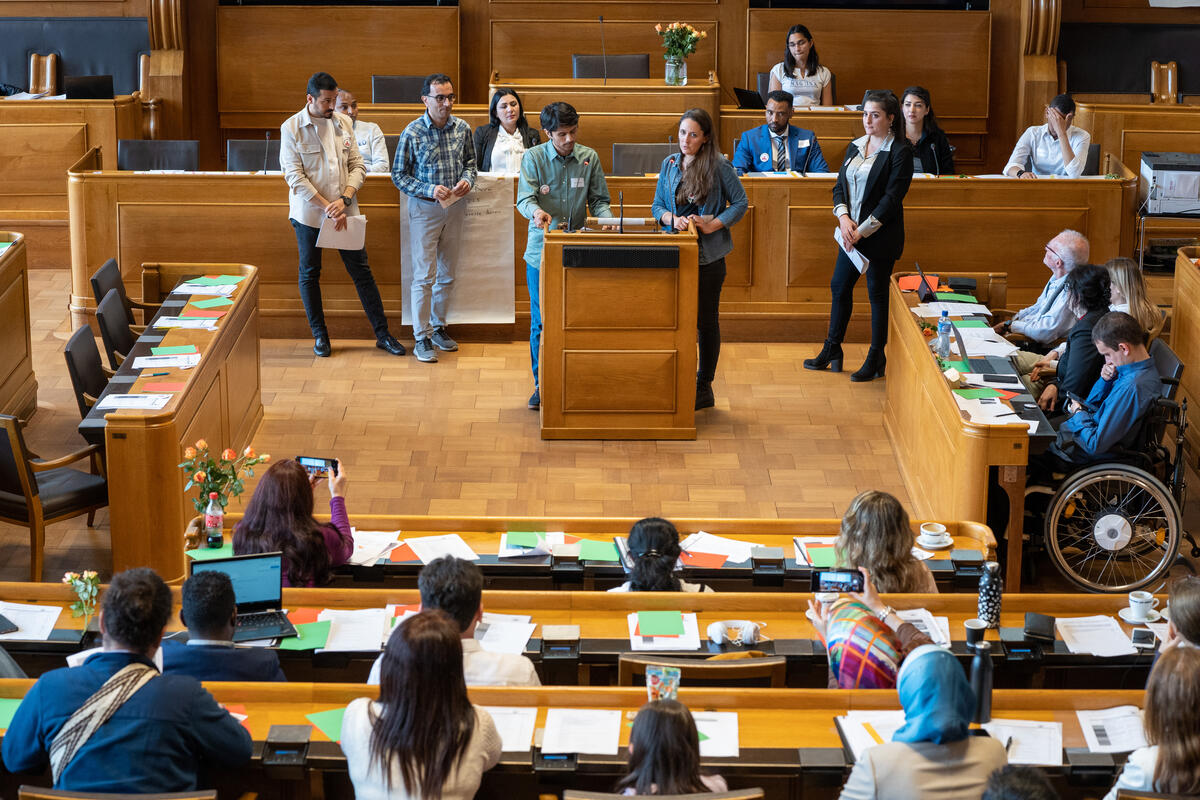Refugee Parliament gives a voice to people forced to flee
Seated in Bern’s impressive medieval townhall – the seat of power for this region of Switzerland for over 600 years – Slahadin Romodan, a 34-year-old from Eritrea, has just voted for the first time in his life.
“It was a good feeling,” he says smiling.
He is among over 90 refugees from all over the world, now living in every corner of Switzerland, who have come together for the second Swiss Refugee Parliament. The event is an opportunity for them to discuss issues that are critical to them, and have their voices heard.
"I want to take part in decisions on my future and the future of my kids."
Slahadin has been in Switzerland with his wife and two children since 2016. He is doing a nursing assistant apprenticeship at a local hospital and appreciates the life that he has built here, but for him, true integration comes with feeling like he has a voice in Swiss society.
“As long as I am in Switzerland, I want to take part in decisions on my future and the future of my kids,” he says.
He and other refugees affiliated with the National Coalition Building Institute (NCBI), a Swiss NGO, came together last year to launch the Refugee Parliament with the support of UNHCR, the UN Refugee Agency, and other organizations.
Organized along similar lines as a regular parliament, the participants are divided into working groups and prepare proposals, which are then presented and voted on in a plenary. During the course of the day, working group representatives take the stand. Each makes an impassioned case for their proposal before the chair calls the participants to vote – a green card for “yes”, a red card for “no”.
A lively young woman dressed in a red dress and a bright pink hijab, moves around the hall answering questions, providing instructions and solving issues. She is 25-year-old Nahid Haidari from Afghanistan, a co-organizer of the Refugee Parliament and one of its founders. She has been living in Switzerland with her mother and five siblings since 2011 and sees her future here. “I am Swiss”, she says proudly, as she talks about the close-knit group of Swiss school friends who helped give her a sense of belonging.
The university student does not shy away from talking about the difficulties she had to overcome as a Muslim woman and as a refugee. She is determined to help other refugees facing similar obstacles and believes the Refugee Parliament can improve their representation in Swiss politics.
“Until now, people have always talked about us, and not with us. Our voices are missing, because political participation, including elections, is bound to legal requirements like naturalization,” she explains. “I hope that the Refugee Parliament will raise awareness and help make the opinions of refugees known.”
After taking the stand on behalf of his working group, which is focused on building coalitions with other organizations, Slahadin talks about an issue close to his heart: the difficulty refugees experience accessing higher education. He studied psychology in Ethiopia and would like to pursue postgraduate studies but has struggled to secure financial support to attend a Swiss university. “Integration in Switzerland is not difficult. The difficult part is the limited opportunities that the educational system gives to refugees,” he says.
Following a long day of intense deliberations, the participants are called on to choose their 10 main proposals. Those selected include aligning the rights of all refugees in Switzerland, insurance coverage for refugees with disabilities, access to mental health services during the asylum procedure, and equal access to language courses, trainings, tertiary studies and the job market.
Last year, some of the refugees visited the Swiss Parliament to share their proposals. Both years, some Swiss parliamentarians also attended the event in Bern to engage with the participants directly.
“They saw us for the first time and understood that behind all these stories are human beings and not just identity papers,” says Nahid.
The Swiss media’s interest in the event means the proposals are also likely to reach the wider Swiss public.
The organizers have even bigger plans for the future. They want to promote meaningful engagement with parliamentarians across political lines and set up Refugee Parliaments in every Swiss canton – an important step in a federal state where political decision-making is decentralised.
The event was supported through UNHCR’s new grants for organizations led by displaced and stateless people.













